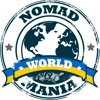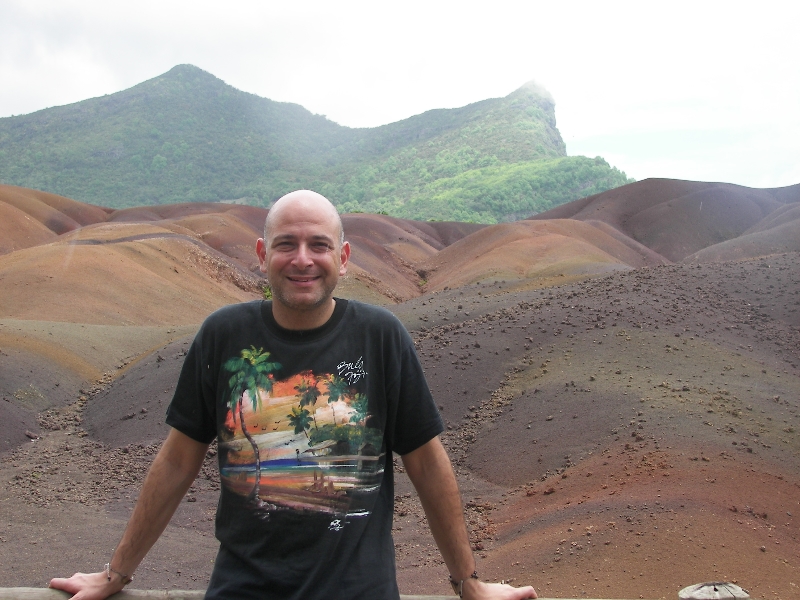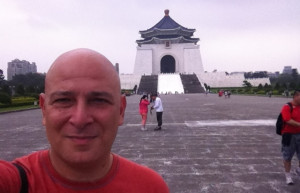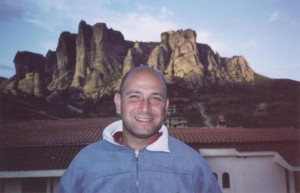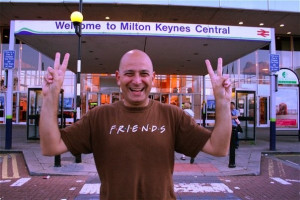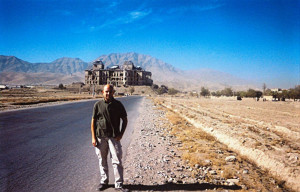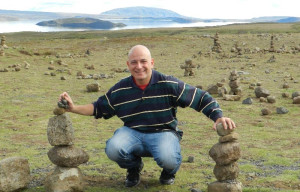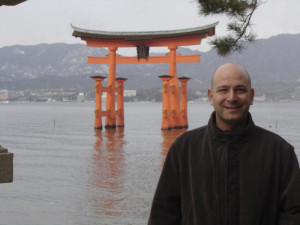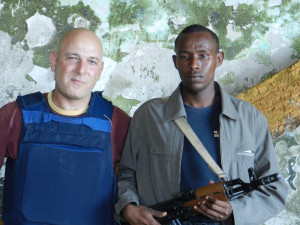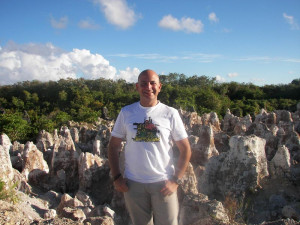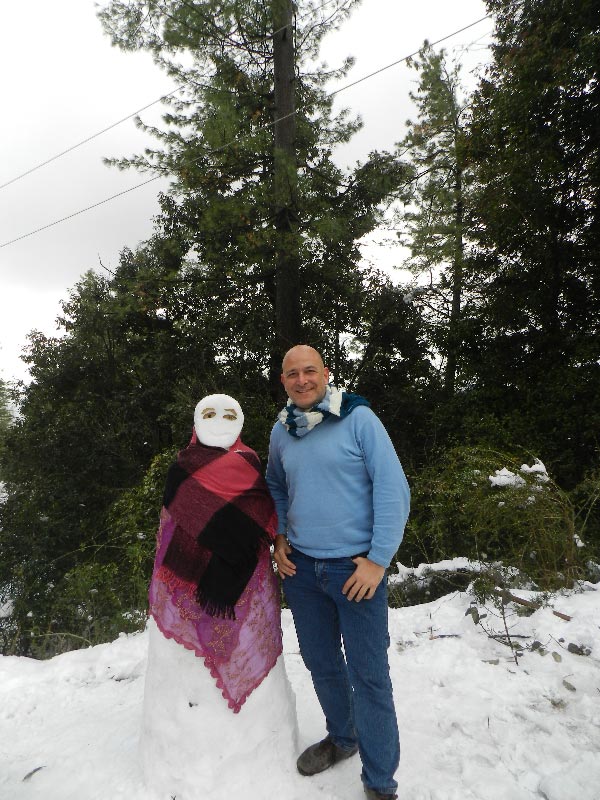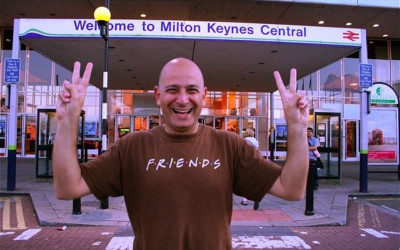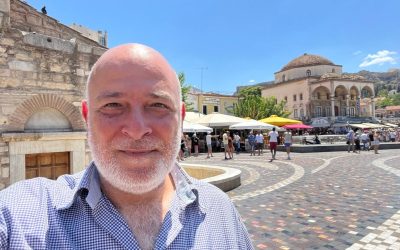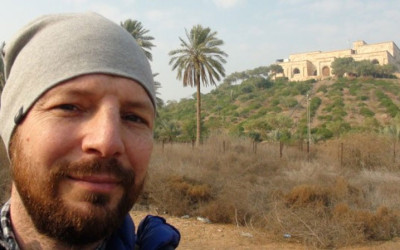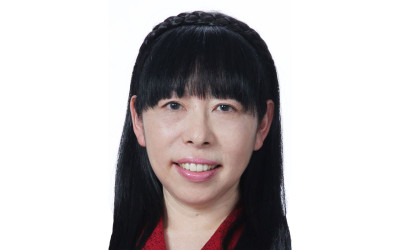Kristina: Harry, you are one of the best travelled people around, but, beyond these facts, tell us something about Harry the person.
I remember walking up the road with Sonia, one of my first girlfriends back when I was 19, and she suddenly exclaimed: ‘Harry you are not from this world’. I kind of think this sums it up.
Kristina: When did you start showing your passion towards an “international life” rather than a usual, “normal” one?
When I was a child, I would visit my grandparents in London once or twice a year, so from the start I had an ‘international’ life more than most of my peers. However my real international ‘life’ started later than most young people today, as a student I was very much in Greece; the only ‘new’ countries I visited between 1988 and 1993 were Canada, Denmark and Hungary. When I was doing my MBA, we needed to do a summer internship and I chose to go to Vietnam, which back in 1996 was still rather closed to the world, so that was a sign I preferred to go out of my comfort zone. This was my first real trip to a ‘strange’ place. At the age of 26 I only had 43 countries done – most of them European, so I wouldn’t call myself a very big traveller at all. The real travels began in the summer of 2000 when I headed to Chisinau and Odessa. I was the only Greek passenger on the Tupolev of Air Moldova from Athens, I kind of remember the check-in staff giving me an odd look – so this was really the start. I think by 2003 it was clear that a ‘normal’ life was just not meant to be. Since 2003, the longest I have stayed in a country without crossing a border is 52 days. I spent a year and a half living and working in Switzerland but never had more than 11 consecutive days in the country.
Kristina: How and why did you start the goal of visiting every country?
The why is easy – curiosity. I don’t believe anything I hear unless I experience it with my own eyes. So I wanted to have a valid opinion of every country in the world based on my own observations. How? Well, gradually I went through the list… simple!
Kristina: During your “quest” of visiting every country in the world, were you ever on the verge of giving up? Or if we put it differently, was there any country that was particularly difficult to visit (be it because of safety issues, visa problems…)?
There were times when I lost my strength but not so much because of external difficulties that you mentioned – one can always overcome visa problems and safety issues were only a real concern in a couple of cases. The main issue is that nobody really supported this goal until it was at its final stages. People thought I was a complete lunatic, so there were times when I doubted my own sanity. Instead of enjoying outings with friends or a summer at the beach, I would be going on sweaty, uncomfortable trips to places like Central African Republic. The lack of support nearly killed my dream but luckily I am obstinate enough. The most difficult to visit countries in terms of visas were Saudi Arabia, Nigeria, Angola and Equatorial Guinea, but for each one I found a suitable solution.
Kristina: How long did it actually take you from making the decision about visiting every country in the world to the moment you accomplished the goal?
I think I only realistically started aiming for the whole world after visiting Afghanistan in October 2003. Until then I was just trying to see as much as possible. But once I did Afghanistan, which was my 100th country and had been out of bounds from when I was a child until the U.S. intervened in late 2001, I felt that no other country could stop me. And it didn’t. So it took four years and a bit, until the last one was Equatorial Guinea in March 2008. South Sudan then became independent in July 2011, and I visited in September of that year; I also visited Somalia – as opposed to Somaliland – in November 2011 and the ‘Arabic’ Iraq, as opposed to only Iraqi Kurdistan, in December 2012.
Kristina: What is the personality trait that has most helped you in travelling? And the one that has been the most problematic?
I think excellent organisational skills have been essential in successfully doing this, as well as my inborn obstinacy. The most problematic aspect is my need for hygiene and some basic comforts. I am not as adaptable as some other adventurers who can sleep for days under a bush or without a shower on a crowded train. I am also rather shy, which may come as a surprise to most people who have met me. That isn’t quite congruous with the personality of a traveller.
Kristina: How has travelling changed you?
I think the only big change is that I no longer feel connected to any place – and this is probably a bad thing ultimately. When I was growing up and until later on, I kind of ‘belonged’ to Greece, most of my friends were there and I was part of the local realities, like most people tend to be. But through travelling this has become increasingly harder, with the consequence that I find any place too limiting ultimately. Other than that, I don’t think my personality has changed that much. I was never a racist or a snob of any kind, and have always loved people in general; and yet I have always been, and still am, shy and hard to get to know.
Kristina: Which countries and regions are on your bucket list to revisit?
I think there are various different categories in this list. The first category is the countries I feel I have really not done justice to and should revisit to get to know better: on the top of the list are Madagascar, Mozambique, Democratic Republic of Congo, Algeria, Mali, Jamaica, Kazakhstan (where I am going next week) and Guatemala. Then there are some regions of the world I would like to delve into deeper. A tour of France is high on my list, and I’d like to see more of Portugal and Vietnam, two of my top countries. Finally, doing justice to some of the Greek islands is a priority – I haven’t been to Santorini as an adult, believe it or not…
Kristina: What is your craziest travel story?
A global traveller always has many crazy stories because in a way the world we live in is a crazy place if we dare discover it enough. Inevitably, getting arrested in Yemen and spending the night there in jail, ultimately sharing lunch and even becoming a Facebook friend with one of the policemen must rank as the scariest and also craziest. I am usually careful when travelling, but on that occasion I so wanted to cross into Eastern Yemen from Oman that I agreed to leave my passport with the border guards, which ended up getting me into a deep mess. The story included meeting the drugged-out brother of my student, sharing a cell with an aged wife-beater, and witnessing the morning ‘traffic’ at Al Ghaydah police station while my passport was brought 120 kilometres from the border by a special taxi after a visa was issued retroactively by the people at the border. The whole thing is nuts. It will be one of the stories in my travel book.
Kristina: Is taking pictures an important part of travelling for you? Or do you prefer keeping the images from your travels in your mind only?
I almost wish I was one of those people who kept images of the mind. This would possibly make my travels more relaxed. Unfortunately I am a crazed photographer always on the look-out for the next photo opportunity. I wish I could wear those glasses which are also cameras so I could take photos of people more easily. It is people who fascinate me most, but photographing them, especially in some environments, can be problematic.
Kristina: If you could go back to your younger years, would you do anything differently?
Yes, absolutely. I entered the Greek law school, which I quickly abandoned in favour of studying sociology, and then did a master in sociology at Oxford University, which was the best year of my life, followed by the utterly wrong decision to do an MBA. I ended up as a lecturer mainly in business in various countries such as Switzerland or Oman, but though I love teaching, I feel that is not where my talents lie. If I could start again I would become a war correspondent and go to all the danger zones where the action is. Or maybe get more involved in aviation, which I have always loved, and become a friendly check-in agent. Or maybe both – experience gun battles and tanks in the day, and then smile at passengers at night…I would also learn a really niche language, something like Somali or Cambodian, or Javanese…
Kristina: Talking about languages, another famous traveller Jorge Sanchez, called you a “polyglot traveller”. How many languages do you actually speak and how helpful is it for you?
It’s not so much speaking, rather reading – I can read the paper in 12 European languages rather comfortably. I am bilingual in English and Greek, though I think in English as my parents also use it as their language at home. I am almost fluent in Serbian, and proficient enough in French and Spanish, though nowhere near fluent. I gave a one-hour presentation to the Aragon Globetrotter club in Spanish a couple of years ago and it seemed the audience understood what I was saying, and that included the Q&A! I also speak decent Romanian (it’s such a quirky language!), Dutch, as I had an obsession with the Netherlands as a young adult, and some German and Russian. In Khojand, Tajikistan, they interviewed me for local TV in Russian, and I can speak with old ladies and taxi drivers (who always stress how evil the US is!) with no trouble, but the grammar is non-existent. I can get by in Portuguese when I must, and read Italian and Bulgarian understanding 90% though I can’t speak these languages really. For years I’ve been trying to learn Turkish, but have some mental block with that it seems, though I can do basic things like get a hotel room and have simple conversations. For sure, I believe anybody who calls himself a global traveller needs to speak languages, otherwise it means being ripped-off endlessly, needing a guide, or a guide-book, and of course losing so much cultural insight. I cannot imagine myself in a country like Gabon without French or in Bolivia without Spanish – and anywhere in rural Russia without Russian. Reading Cyrillic has made my roaming through each Russian ‘oblast’ much easier. With about 100 words of Bahasa Indonesia, a whole new world opens up every time I’m in Indonesia.
Kristina: Have you ever thought of giving up travelling for a more stable lifestyle?
I think about it every day, but I think this will be impossible. More stable – possibly, meaning 4-5 trips a year rather than a constant movement. But giving up travelling, that is never going to happen.
Kristina: What are your next milestones in your travel ‘career’?
There’s quite a few actually. I keep a listing of all my flights since I was born – some of the early ones are guesswork, the list is correct since 1983, but anyway I am now only 5 flights away from my 2000th flight. So this is the most recognisable milestone which will be reached within September if all goes as planned. I also plan to finally get my travel book published within the next year or so – it’s a collection of 60 travel stories from different places in the world. It’s been lying around for two years now, I just need to find the time to investigate publishing options and add a couple of stories. I think the next is an anti-milestone. I’d like to succeed in spending more than 100 days in one country without a border crossing. That will be a record since 1993. I’m aiming for that next year.
Kristina: Why did you found TBT?
It seemed like a good idea at the time. I wanted an excuse to travel more and something creative to do and also felt this could be a platform for people to come together, really give their own input about travelling, as well as have a new, logical way of dividing the world as well as possible.
Kristina: What did you gain from TBT?
Extra wrinkles and headaches! My stress levels have reached the wall on many occasions with this project. On the bright side, thanks to TBT I have on a virtual level come closer to many more people, and some I have met in person. The thing about us big travellers is that we instantly connect, if only because most of the ‘normal’ people think we are weirdoes. TBT has also taught me very much about project management, human psychology and the role of social media today. It has all been exceptionally educational.
Kristina: What are your ideas on travelling in general and how it will evolve in the next years?
I don’t have much to say that isn’t already obvious. Clearly, people are travelling more, especially from some Asian countries and Russia. At the same time though, I am a bit pessimistic – instead of opening up, a lot of the world is becoming harder to get to, and this is a trend that will possibly continue. The shelling of flight MH17 deeply shocked and saddened me. Many countries in sub-Saharan Africa and the Middle East are already no-go zones, which is a terrible shame, while some others are adding, instead of taking away, visa requirements (Senegal is an example of this). I’m also not sure that aviation will be able to sustain its growth if oil prices continue to rise. So, let’s see. But for sure, there will be more and more people on the list of those that have visited every country.
Kristina: What are you most proud of?
That’s a tough question. When I was a student at university I used to make amateur films. I think successfully completing ‘Wake Up Little Bluebird’ which took 6 months of filming and editing, starring at least 10 main actors, with a final running time of 128 minutes is what I am most proud of. The organisation, planning and creation of it with the means available back in 1993 was a really big achievement. It has nothing to do with travel – though the film did incorporate one of my early trips to New York!
Kristina: Have you found paradise?
Clearly, paradise is a state of mind and not a place. I’m probably too restless to say I have found it. But because you want an answer that involves a place name, I’ll say Luang Prabang in Laos. It’s a place I could stay in for weeks, possibly months, and just relax.
Kristina: So, Harry, where are you today? And what are your next destinations?
Today I’m flying back from Asia to Greece. Until October I plan to go to Kazakhstan and then for a trip to the US, which will also include my first ever visit to Chicago (surprisingly I have never been there). I will meet Don Parrish, who is truly well travelled, there, so I am really looking forward to that. At the very end of October I will have a 6-week trip to Latin America where I hope to mainly explore Peru, Bolivia, Ecuador and Colombia. This has been a very busy travel year, but things will be quieter in 2015 with the exception of the cruise to Bouvet Island that has been organised partially through thebesttravelled. I’m not quite settling down, of course. But there are some things in life apart from travel – not much of course, but some things…
The photos in the interview show Harry in Mauritius, Taiwan, Kyrgyzstan,Greece, UK, Afghanistan, Iceland, Japan, Somalia, Nauru and Pakistan. You can find out more about Harry and his travel statistics, and see some of his collection of 35.000 photos by going to his personal website www.charalampos.cc. For Serbian and Slovenian speakers, there is also a Wikipedia entry on Harry here.
